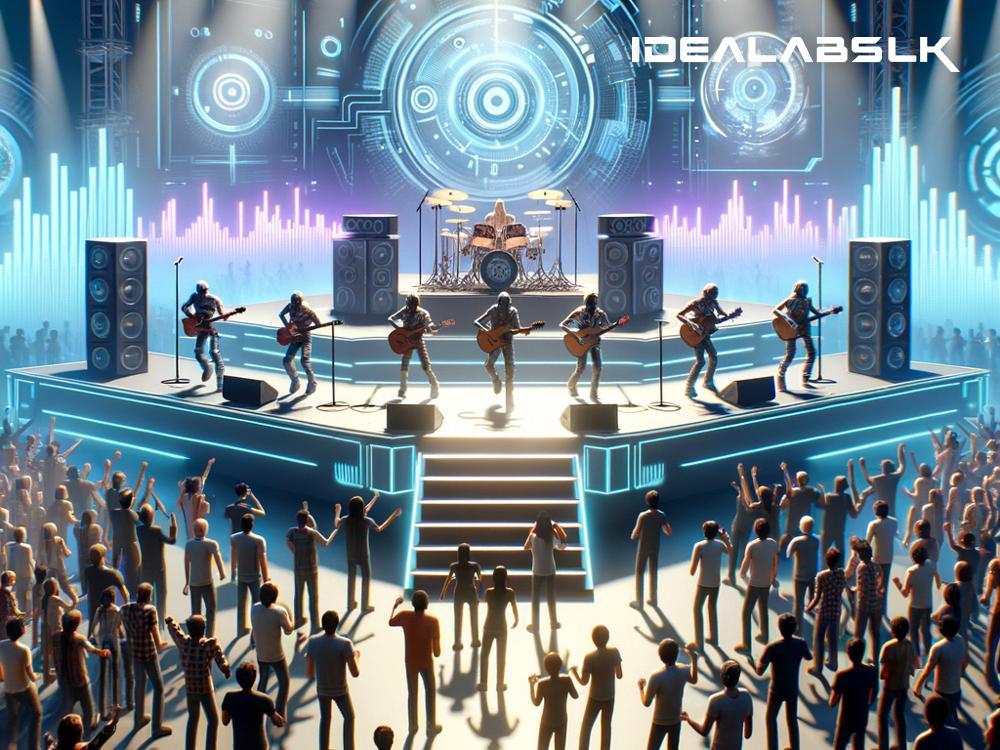How AI-Generated Music Will Change the Soundtrack of Video Games in 2025
In the magic world of video games, music plays a superhero role. It's not just background noise; it's the soul that breathes life into pixels, turning every jump, fight, or exploration into a deeper experience. But as we skate into 2025, the way this music is made is flipping on its head, thanks to Artificial Intelligence (AI). Let's dive into how AI-generated music is set to remix the soundtrack of video games in ways more fascinating than ever before.
First off, AI is like a super-smart computer brain that learns how to do things by looking at tons of examples. It's been learning to create music by understanding patterns in melodies, rhythms, and even emotions in songs. In 2025, AI's ability to compose music has reached levels that can make even the grumpiest skeptics drop their jaws in awe. Here's how this tech-powered tune-making is reshaping the soundscapes of video games.
1. Personalized Player Experiences
Imagine playing your favorite adventure game. With AI-generated music, the soundtrack can change on the fly based on your actions. If you're sneaking through a shadowy castle, the music might whisper with suspense. Suddenly spotted? The music swells into a heart-pounding chase theme. It's like having a composer follow you around, making a personalized score for your gameplay. This level of personalization makes each player's experience unique, turning even a familiar game into a fresh adventure every time.
2. Adaptive and Evolving Soundtracks
AI doesn't just switch tracks; it evolves them. Say you're playing a game where you're building a civilization. As your tiny village grows into a bustling metropolis, the soundtrack grows with it. The music that started with a few simple notes evolves into a complex symphony, reflecting your progress. This adaptive music isn't just about emotion; it's a dynamic part of the game's storytelling, making the world feel alive and responsive.
3. Endless Musical Variety
In the past, video game music had its limits. Games shipped with a fixed soundtrack that, no matter how good, eventually became repetitive. Fast forward to 2025, and AI-generated music breaks these chains. It can create an almost infinite variety of musical pieces, ensuring that even in games where you spend hundreds of hours, the music stays fresh and exciting. This is a game-changer for massive multiplayer online games (MMOs) or sandbox games where players thrive on non-repetitive, engaging experiences.
4. Creative Collaborations
One of the coolest aspects of AI in music creation is its role as a collaborative partner. Game developers and composers can input their ideas, themes, or even rough melodies into the AI, which then expands upon them. This process doesn't replace human creativity but amplifies it, enabling creators to explore musical terrains they might not have ventured into on their own. It's a bit like having a jam session with a computer that has an encyclopedic knowledge of music theory and history.
5. Cost Efficiency and Accessibility
Developing a video game is expensive, and traditionally, hiring composers or licensing music added a significant chunk to the budget. AI-generated music can dramatically reduce these costs, making professionally sounding soundtracks accessible even to indie developers with tighter purse strings. This democratization of music production means we'll likely see an explosion in creative, diverse soundtracks across games of all sizes.
6. Ethical and Legal Considerations
With great power comes great responsibility. As AI begins composing original scores, questions about copyright, ownership, and ethics bubble up. Who owns an AI-generated piece of music—the person who designed the AI, the one who fed it the initial ideas, or the AI itself? The industry is still wrestling with these questions, and by 2025, we'll likely see frameworks and guidelines shaping up to ensure creators are fairly credited and compensated.
In Conclusion
As we step into the future of video games in 2025, AI-generated music is not just altering the technical landscape; it's redefining the emotional and aesthetic experience of gaming. By crafting soundtracks that adapt, evolve, and resonate with every player’s journey, AI is truly setting the stage for a new era of immersive and personalized gaming experiences. So, get ready to press play on a world where the music never stops changing, always inspiring, and forever elevating the art of video games.

